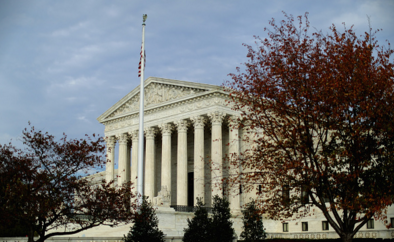I share a sentiment tweeted by master of the horror genre, Stephen King. He wrote, “The stupidest, ugliest Presidential campaign in my entire life: HOUSE OF CARDS meets SHARKNADO.” While the reference is on point, I think its underlying message is even truer given the political fallout following Supreme Court Justice Antonin Scalia’s death last week. Republican presidential candidates and GOP congressmen alike sprung into action, showing little veneration for the dead and vilifying even the thought that President Barack Obama might decide to use his executive authority to nominate another justice before his term is up. This quick and universal moratorium, however, will prove more troublesome to the GOP than their reactionaries may have first assumed.
Scalia was one of the starkest conservative voices on the Court. His presence foretold a 5-4 Republican majority on most of this season’s major cases, which range in subject matter from abortion to campaign financing. Indeed, not in recent memory has there been a docket as significant as this in the light of a deciding justice’s replacement. GOP leaders are justifiably concerned that Obama will elect a left-leaning justice and leave the court in the hands of a liberal majority. Ted Cruz and Mitch McConnell have each publicly demanded the President not choose a replacement (though this dictum disregards the President’s constitutional authority and is something Scalia — a staunch originalist — would surely have opposed). Their reasoning, admirable to some, is that the people should have a say in the appointment come November, hanging not only the presidency but also the majority political ideology of the court on the election.
This strategy, while wildly populist, is not a bright one. It inaugurates yet another factor for voters to consider when electing their president. As an article in The New Yorker rhetorically asks, “Will the suddenly inescapable vision of, say, a Cruz Presidency and a Cruz-chosen nominee bring more Democrats to the polls?” I think the answer is inarguably yes. If the president’s next appointee is repeatedly blocked by the Senate, two things become painfully clear: The court will face the upcoming docket in a virtual tie, thus relegating each decision back to the lower courts, a situation which does not serve the people whose lives are and will be affected by the lack of Court consensus, and the people need to look no further for the cause of this gridlock than the GOP-led Congress. If the election becomes a contest between the sitting president’s party and the do-nothing Congress’ party, the people may look less favorably on the party who leads by standstill. David Plouffe, Obama’s 2008 campaign manager, tweeted something to this effect following McConnell’s announcement: “Well, the Senate GOP might have just ensured the Obama coalition turns out in ’16. Dem WH for 16 straight years, Dem Senate in ’17. Geniuses.”
Obama has a little over 330 days left in his term. Given that time allowance, and given any other political quagmire than the one we seem to find ourselves in today, the president should have room enough to ponder his options, choose a worthy candidate and pass that candidate on to a thoughtful and acquiescent Senate. I think that’s the idea, at least. Alas, that which we call Congress by any other name would smell as sour. It’s clear the Senate, rather than taking time to consider the merits of Obama’s next appointee, will instead block him based purely on party politics.
So, in what has been one of the most vitriolic election cycles I have ever witnessed, I can’t help but ponder the wherewithal it takes to maintain the level of crap this poisonous two-party system is subjecting its citizens to. I hope come election day, if things haven’t changed drastically for the better, this country’s constituents put back in their place (meaning out of office) those who would rather hang the nation in the noose of ideology than see any sort of bipartisan collaboration.


